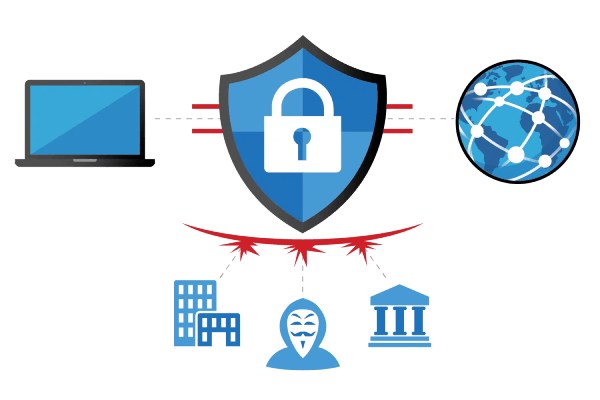
Best VPN Services for Browsing Internet Safely
Choose the best VPN by comparing its features such as security, location access, bandwidth, server networks, pricing and refund policies for your needs.

Looking for the best VPN Services for your online privacy and security – Here is list of top VPN providers tested and reviewd by our experts. You can choose the VPN that fits your need and compare easily its prices, technical specifications, support and additional information.
- Over 1000s IPs & 70+ locations
- 256-bit encryption
- LiteSpeed Webservers, Caching, cPanel & Support
5
- Save 66% OFF + 3 months Extra
- 30 Days Money Back Gurantee
- Unblock Geo-Restricted content
4.8
- Fast Speed and High Security
- Apps for every device
- 24/7/365 Real-Time Expert Support
4.9
Best Online VPN Service
- 100% Uptime, Fast and Secure VPN
- Connects up to 6 device at a time
- Up to 66% OFF on 2 years Plan
5
- Stay Annonymous while Surfing and secure privacy
- Connect up to 10 devices simultaneously
- Stream your Favorite content from anywhere
4.7
What is VPN?
VPN stands for Virtual Private Network. It is a technology that allows users to establish a secure and encrypted connection over a public network, typically the internet. The primary purpose of a VPN is to enhance privacy, security, and anonymity while accessing the internet or other network resources.
When you connect to a VPN, your device (such as a computer, smartphone, or tablet) creates a secure tunnel between itself and the VPN server. All data transmitted between your device and the VPN server is encrypted, making it difficult for anyone else to intercept or access your internet traffic. This encryption ensures that your online activities, including browsing, online communication, and file transfers, are protected from hackers.
The primary uses of a VPN include:
- Enhanced Privacy: A VPN helps to hide your real IP address and location, making it harder for websites and online services to track your online activities.
- Security on Public Wi-Fi: When connected to public Wi-Fi hotspots (e.g., in cafes, airports, or hotels), using a VPN ensures that your data is encrypted and secure, reducing the risk of data theft or unauthorized access.
- Bypassing Geo-restrictions: VPNs can allow you to access content and services that may be restricted or blocked in certain countries or regions. By connecting to a VPN server in a different location, you can appear as if you are accessing the internet from that location, bypassing geo-blocks.
- Business Use: VPNs are commonly used by businesses to provide secure remote access for employees working from home or while traveling. This helps protect sensitive company data and ensures secure communication between employees and the company’s internal resources.
How does VPN works?
VPN works by establishing a secure and encrypted connection between your device (such as a computer, smartphone, or tablet) and a VPN server located in a different location. This connection creates a “tunnel” through which all your internet traffic passes, making it appear as if your device is located at the VPN server’s location.
Here’s a step-by-step explanation of how VPN works:
- Encryption: When you connect to a VPN, your device initiates a process known as “handshake” with the VPN server. During this handshake, the two devices negotiate and establish an encrypted connection using protocols like OpenVPN, L2TP/IPsec, or IKEv2/IPsec.
- Tunneling: Once the encrypted connection is established, all of your internet traffic, such as web browsing, file transfers, and online communication, is encapsulated within this encrypted “tunnel.” This process ensures that any data sent between your device and the VPN server is protected from potential eavesdroppers and cybercriminals.
- IP Address Replacement: Your device is assigned a new IP address by the VPN server. This IP address is typically associated with the location of the VPN server rather than your actual physical location. As a result, websites and online services see the VPN server’s IP address instead of your real IP address.
- Internet Access via VPN Server: All your internet requests and data are sent to the VPN server through the encrypted tunnel. The VPN server then forwards your requests to the internet on your behalf. When websites or online services respond to your requests, the data is first sent to the VPN server and then forwarded back to your device through the encrypted tunnel.
- Anonymity and Privacy: By using a VPN, your real IP address and location are concealed, providing a layer of anonymity and privacy while you browse the internet. Websites and online services can only see the IP address and location of the VPN server, making it more challenging to track your online activities back to you.
- Data Security on Public Wi-Fi: When you connect to a public Wi-Fi network (e.g., in cafes, airports, or hotels), using a VPN ensures that your data is encrypted and secure, reducing the risk of data theft or unauthorized access by malicious actors on the same network.
Choose a reputable VPN service provider that prioritizes your privacy and enhances your online security.
Best Picked VPN by Experts :
:
Up to 90% OFF + Premium Password Manager
- Highly secured and premium VPN Service
- 30 Days Risk-Free Guarantee
- 24/7 customer support
- Secure up to 10 devices simultaneously
5
All Rights are Reserved © Digitcompare.com




